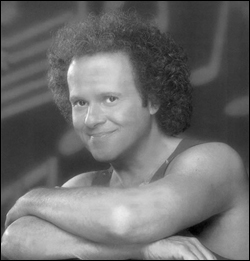I don’t require a lot of reality in my entertainment. Really, if a movie wants to tell me that Jennifer Lopez is the most qualified psychotherapist they could find to send inside the brain of a dangerous serial killer, I accept it as an informed decision and continue eating my Raisinets. Denise Richards as a nuclear physicist? Terrific—get me a Cherry Coke.
But a guy can only be expected to handle so much.
De-Lovely is a film about brilliant songsmith Cole Porter, a man whose fizzy, naughty wit provided the world with some of its most treasured pop standards. He was also a flaming homosexual, which will surprise no one familiar with fizzy, naughty wits but which is obviously still a challenge for movies made about them. De-Lovely opts to make Cole Porter secondary in the life of Cole Porter, because it’s still more desirable to produce a film about the love of a good woman than it is to consider what it was really like to be fabulously gay and clever in the early decades of the last century.
The film spends two hours telling us that the great love of this flaming homosexual’s life was his wife-of-convenience, society dame Linda Lee. Now, this may surprise you, but I have no problem believing that the great love of Cole Porter’s life was a woman. Who am I to say who’s most important to whom? Life and love are messy, so it’s entirely possible that sexual preference is just a minor concern for some people when they’re following their hearts. Ask Liza Minnelli, she’ll tell you. The problem with De-Lovely is that we’re asked to watch Porter’s phenomenal gayness play out mostly on the sidelines while Ashley Judd approximates brittle fag-haggery and moans about Kevin Kline’s inattentions. Call it “What Will & Grace Hath Wrought.” The movie would rather do anything than seriously contemplate Porter’s homosexuality, including shoehorn a bunch of modern singers into excruciatingly uncomfortable renditions of his songs (Diana Krall looks as though she’s having a kidney removed).
De-Lovely isn’t the first film to play fast and loose with historical accuracy. Hollywood is always conveniently downgrading the complicated real lives of its subjects, homo or no. Everybody knows that Patroclus was Achilles’ lover, yet Troy decided to portray him as Achilles’ cousin, despite the fact that—outside of my personal fantasies and the occasional Bruce Webber photograph—straight male cousins are rarely buffed, gorgeous, and devoted to one another. But Troy, at least, had Brad Pitt removing his ancient loincloth, which made one forget all about history and accuracy (and eating and sleeping and breathing . . . ). De-Lovely only has Kevin Kline’s ancient loins, and while I’m frankly glad his Cole Porter remains clothed, it must be the first such time a rich gay man surrounded by fawning young male admirers has ever managed to do so.
Think I’m being too sensitive? Fine, then you’ll enjoy my remake of The Pride of the Yankees. Richard Simmons will be essaying Gary Cooper’s old role of Lou Gehrig, and his comely wife, Eleanor, is Rosie O’Donnell. Babe Ruth is going to be played by Nathan Lane, the baseball scenes will occur off-camera, and the rest of the Yankees will be the five guys from Queer Eye for the Straight Guy. How many players are there on a baseball team, anyway? Doesn’t matter—it’s only the movies.








